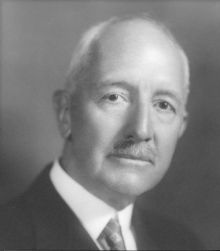SelfDefinition.Org
Developing Mental Power
George Malcolm Stratton
Childhood Education, 1922

Outline
1. Is the Mind a Gymnasium or a Tool-Chest?
Importance of knowing the general character of mind
Controversy as to the nature of mind and its training
One view: the discipline of a few general faculties
Some scientific evidences which undermine this view
Another view: the training of countless independent operations
The educational consequences of this doctrine
2. Defects in the Rival Accounts
The errors of the mental disciplinarians
a. Mental powers are not simple and uniform
b. The deep forces behind intellection are neglected
c. Powers are infinitely varied and actual knowledge is important
Errors in the current doctrine of "contents"
a. The mind is active and selective
b. Practice effects are not rigidly confined
c. The complex and varied nature of our particular responses
3. The Interplay of Mind and Body
The mind is an organized unit with distinguishable parts
The mind is vitally connected with the body
a. Whatever influences the body influences the mind
b. Muscular expression and mental effectiveness
c. The instance of left-handedness
The body is also vitally influenced by the mind
a. Some concrete illustrations
4. Influences within Intelligence
Particular and general ideas in educative knowledge
Wide and superior powers gained through trained habits of mind
Imparted ability is a better measure of education than recollection
5. Emotion and Mental Energy
The emotional life as an underlying source of energy
The effect of violent disturbances of the emotions
The influence of ordinary emotional tones
Environment clearly influences power to learn
Emotions make strong transfers and associations
The mind, though particularized in ability, is whole and fluid
6. The Organization of Impulses and Will
The impulses and will as neglected opportunity
Two extreme types of mental organization
a. Various impulses acting with considerable independence
b. Various impulses subordinated to a ruling passion
A third and wholesome type of organized mind
The care and organization of instincts requires emphasis
Changes in emotional reorganization may be gradual and calm or sudden and marked
7. The Care of the Emotions
Emotions are of two kinds
a. The sthenic [high energy] emotions are for long and steady use
b. The asthenic emotions [abnormal physical weakness or lack of energy] have only a limited and short use
The dominant emotions of childhood depend in part on bodily condition
Example and imitation have a profound effect on feeling
Other special means of giving an undertone of joy to work.
Pleasing order in externals will assist
The irresponsible enjoyment of fine things is of value
Imagination and courtesy as aids
The fine arts should be prized for the pupil
Worthy emotions must be made into lasting sentiments
8. Instincts Wild and Tame
Making the great natural forces beneficent is will-training
The passion for having and collecting things
Ambition or the desire to win admiration
Self-abasement and pugnacity
The sex impulse
Personal attachments
Education must penetrate beyond usual schooling and intelligence
9. Exercises for the Will
The three features of a trained will.
The great value of steadiness of will
Steadiness of will means power to do the irksome
The prejudice against change of decision
Steadiness of will must anticipate interruptions
Will depends upon habits of muscular action and feeling
A trained will aims at the right thing
Desired qualities of will gained through graded exercises
Practice in suitable forethought
Developing the trait of persistence
A will fully trained constitutes character
Education demands the talent of creative artists
10. Establishing Government in the Mind
Education looks to the total organization of the person
It seeks a fuller cooperation of existing powers through their modification
The child must be educated as a whole, not piecemeal
There is no special virtue in doing what is intrinsically useless
The different sides of schooling require interconnecting
The danger of specialists in giving needed special training
Minds are more important than subjects
A trained taste, a strengthened sense of duty and reverence
The true relation between mind and the teacher